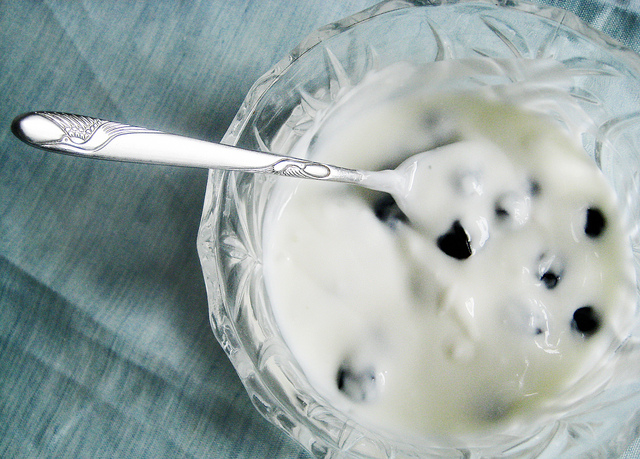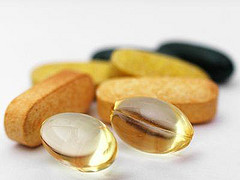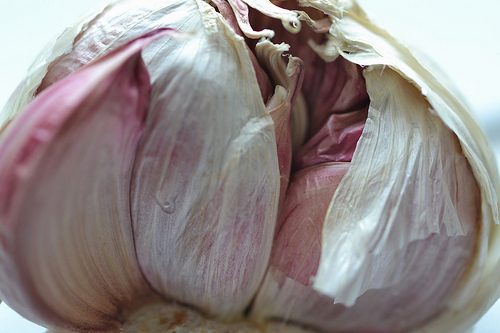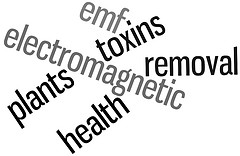The role of gut health in disease: leaky gut syndrome
 Over 2000 years ago Hippocrates said, “All diseases begin in the gut.” Only in the last ten years have we begun to understand this truth and the influence that digestive health plays in chronic disease. We are now realizing that poor digestive health underlies many chronic illnesses including as allergies, diabetes, chronic fatigue, gastric reflux disease, obesity, autoimmune diseases such as celiac disease, rheumatoid arthritis and Hashimoto’s thyroiditis, and many others.
Over 2000 years ago Hippocrates said, “All diseases begin in the gut.” Only in the last ten years have we begun to understand this truth and the influence that digestive health plays in chronic disease. We are now realizing that poor digestive health underlies many chronic illnesses including as allergies, diabetes, chronic fatigue, gastric reflux disease, obesity, autoimmune diseases such as celiac disease, rheumatoid arthritis and Hashimoto’s thyroiditis, and many others.
The role of the gut in disease
Digestive health is important for two main reasons: 1) the gut wall is a barrier preventing us from absorbing toxic material that we consume, and 2) the gut is home to billions of microbiota which help us fight viral, bacterial and parasite infections and keep our immune system strong. Let’s explore both of these important roles further.
The gut wall, repairing a broken fence
When I talk to patients about digestive health I describe the gut as a long tube from mouth to anus that separates us from the outside world. I often use the analogy of repairing a broken fence when I describe healing the gut wall. Antibiotics, stomach viruses, chronic stress, food allergies and lack of breastfeeding all contribute to damaging the mucosal barrier in the gut wall. In order to heal one must rebuild the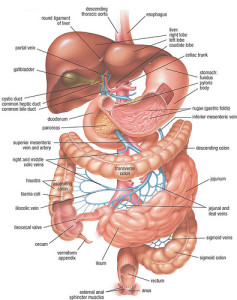 barrier, or fix the broken fence. Holes and cracks in the fence may need to be patched, paint may need to be stripped and resealed, new wood may need to be used in spots.
barrier, or fix the broken fence. Holes and cracks in the fence may need to be patched, paint may need to be stripped and resealed, new wood may need to be used in spots.
Leaky gut syndrome and intestinal permeability
Leaky gut syndrome is a term used in alternative medicine to describe this gut wall damage. Leaky gut syndrome refers to the lining of the gut becoming more porous and more permeable allowing larger protein molecules to cross the gut wall and enter into the blood stream. Theses molecules are not supposed to be found in the blood, therefore the body’s immune system mounts an attack against these proteins. Studies have shown a correlation between the immune system attacking proteins that cross the gut wall and the development of autoimmune disease including celiac disease and type I diabetes.
The gut flora: the bacterial turf
We consume food every day that contains micro-organisms, toxins and chemicals. How are we still alive? One of the main reasons is that our digestive tract is lined with trillions of bacteria, a protective turf that prevents us from getting sick. There are many factors that can destroy healthy gut bacteria:
- Antibiotics
- Birth control
- Chronic stress
- Chronic infections
- Poor diets including diets high in refined sugars, carbohydrates, processed foods and low in fiber
When the healthy bacteria get wiped out by antibiotics, stress and poor diet, the bacterial turf on the gut wall becomes eroded. The gut wall becomes susceptible to damage, infection and invasion by anything that comes along including viruses, pathogenic bacteria, parasites, and other toxic substances that can all cause inflammation and disease.
In her book, Gut and Psychology Syndrome: Natural treatment for Autism, Dyspraxia, ADD, Dyslexia, ADHD, Depression, Schizophrenia, Dr. Natasha Campbell-McBride, MD writes about the how maintaining healthy gut flora can protect us from cancer:
“Our gut flora has a good ability to neutralize nitrates, indoles, phenols, skatol, ksenobiotics and a lot of other toxic substances, inactivate histamine and chelate heavy metals and other poisons. The cell walls of beneficial bacteria absorb many carcinogenic substances, making them inactive. They also suppress hyperplastic processes in the gut, which is the basis of all cancer formation.” (p.17)
How to restore gut health
It is difficult in this day and age to avoid antibiotics, stress and processed and GMO foods. Because of this fact many people have digestive issues, autoimmune diseases and chronic illness. What can you do about it?
 First, consider your diet and eat organic food whenever possible.
First, consider your diet and eat organic food whenever possible. - Reduce your consumption of refined carbohydrates and sugar and consider reduction or avoidance of alcohol and caffeine.
- Increase your intake of fermented foods such as kombucha, kimchi, sauerkraut and yogurt to increase the healthy bacteria in the gut.
- Find ways to manage and lower your stress.
- And lastly, consider consulting a naturopathic doctor if you need further evaluation for leaky gut syndrome, digestive issues, food allergies, candida, parasites or other chronic illness.

